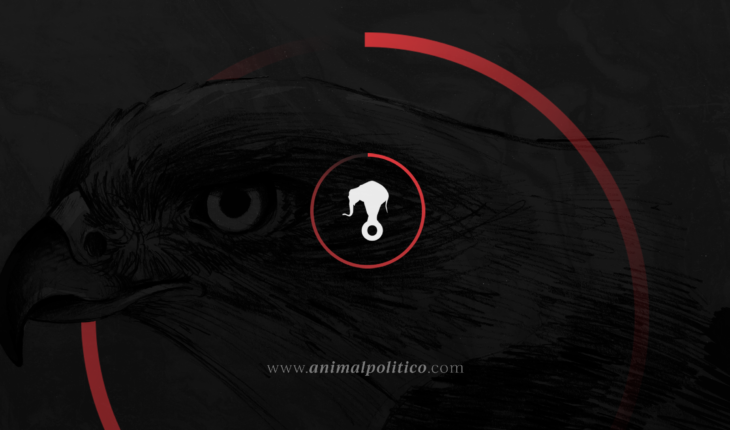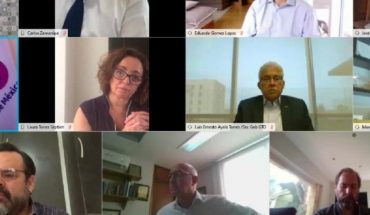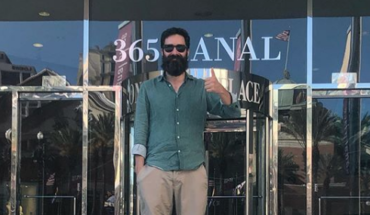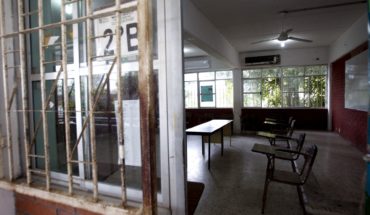Mexico is one of the most dangerous countries in the world to practise journalism. But attacks on the press and threats to freedom of expression cross borders and are a matter of concern to journalists and students of this trade worldwide. As part of World Press Freedom Day, the political Animal spoke on the phone with seven journalism students from different countries and told them how they see freedom of the press in their nations and the threats they see for it to prevail.
Eleftheria Tsaliki, 22 years old. Greece.
Although in the annual ranking on freedom of expression of Reporters Without Borders Greece rose to place 65, it is one of the European countries with less freedom of expression.
From my little experience in the media I noticed a kind of self-censorship, journalists do not dare to propose issues that clash with ideals of political media.
Another big problem is the monopolies in the media. Entrepreneurs who acquire media, also have companies that are forbidden to speak, so the irregularities and injustices that are committed there, are unknown.
In addition, in Greece investigative journalism is not something developed. I think social networks can be a empowering to circulate more easily research topics.
Photo taken from Instagram.
María Natalia Palma Ibáñez, 25 years old. Chile.
As a Chilean, it does not stop worrying that in the annual ranking of freedom of press downstairs steps. In 2018 we were at Place 38 and now we are at Place 46.
As a future journalist, I realize that there is a struggle between informing the public and touching issues of political and economic powers. But in the end one must fulfill his social role… I do not think that journalism is customary, journalism is to inconvenience because it serves to inform what many do not want to know… Without journalism there would be no democracy.
So for me journalism is a window to knowledge, empathy, because in your role as a journalist serving the public, you are in contact with people and people. Being a journalist at the end of the day is also a dreamer, because at least with your work you make society more fair.
Photo taken from Facebook.
Agustín Quesada, 21 years old. Argentina.
From my point of view, in Argentina there is freedom of the press, there are means with different opinions that can raise what they think about politics. I think that can be seen mainly on the web, in small or emerging media, because the big media are related to some political scope.
The main difficulty for journalism in Argentina is the lack of investment, that problem arises largely from the economic circumstances that occur in the country. In journalism, when funds are lacking, a staff cut is raised and that is happening even in large media.
The lack of jobs and the lack of investment in the media is visible. I’m working on a media outlet, but most of my classmates can’t get a job even in an internship plan.
Another problem is that there are areas that are very forgotten by the media. I think there might be research on the problems of small towns without having an agenda pressure.
Photo taken from Facebook.
Ivo Cassiet, 24 years old. Argentina.
Although Argentina is politically divided into two parts, which support the former government of Cristina Fernandez and those who support the current government of MACRI, I feel that there is freedom of the press, there is no systematic censorship for the issues that are published or Investigate.
What I think is that there is no economic freedom in Argentina. At least in the north of Argentina, the media are governed by guidelines that are paid for by some political sector and that obliges the journalist to narrate on the benefit of one of the political parties or the disadvantages of the other political parties.
There is little economic freedom to develop investigative journalism. Of course, as a freelance journalist, you are free to comment and write, denounce and investigate whatever you want. But the ideal would be that as a media or journalist you have a better economic position to do what you consider and not be tied.
Faculty of Journalism of UCLM.
José Miguel Martín Portuguese, 22 years old. Spain.
I collaborated for some time in a small medium called “the student residence” and I have learned some things: the small media have to compete with means of greater economic budget, but the first ones have more freedom than the seconds.
What means financed by the English court is going to criticize the English court? The answer is simple, none. Small media have the advantage that by not having a company or group that supports them economically, they cannot be alibis.
Castilla de La Mancha Faculty of Journalism.
Cristina Dolz, 22 years old. Spain
I could not say that in journalistic practice there is full compliance with freedom of the press and expression. I believe that while precariousness is the daily bread, journalists will not be able to do journalism the level that Spanish society needs.
Journalism in Spain has a deep crisis in the business model because most media are dependent on institutional funding. In addition, some newsrooms-mostly small newsrooms-make it virtually impossible to reconcile family life with work.
I believe that journalistic information should focus on contrasting politics and the economy. Although national media have advanced, regional and local media are very much at the tail. That is the challenge of the new generation of journalists, and of course, not forgetting that Spain is more than Madrid, Barcelona, Valencia or Bilbao.
Thank you for reading! Help us get on with our work. How? Now you can subscribe to the political Animal on Facebook. With your monthly donation you will receive special content. Find out how to subscribe here. Check out our list of frequently asked questions here.





